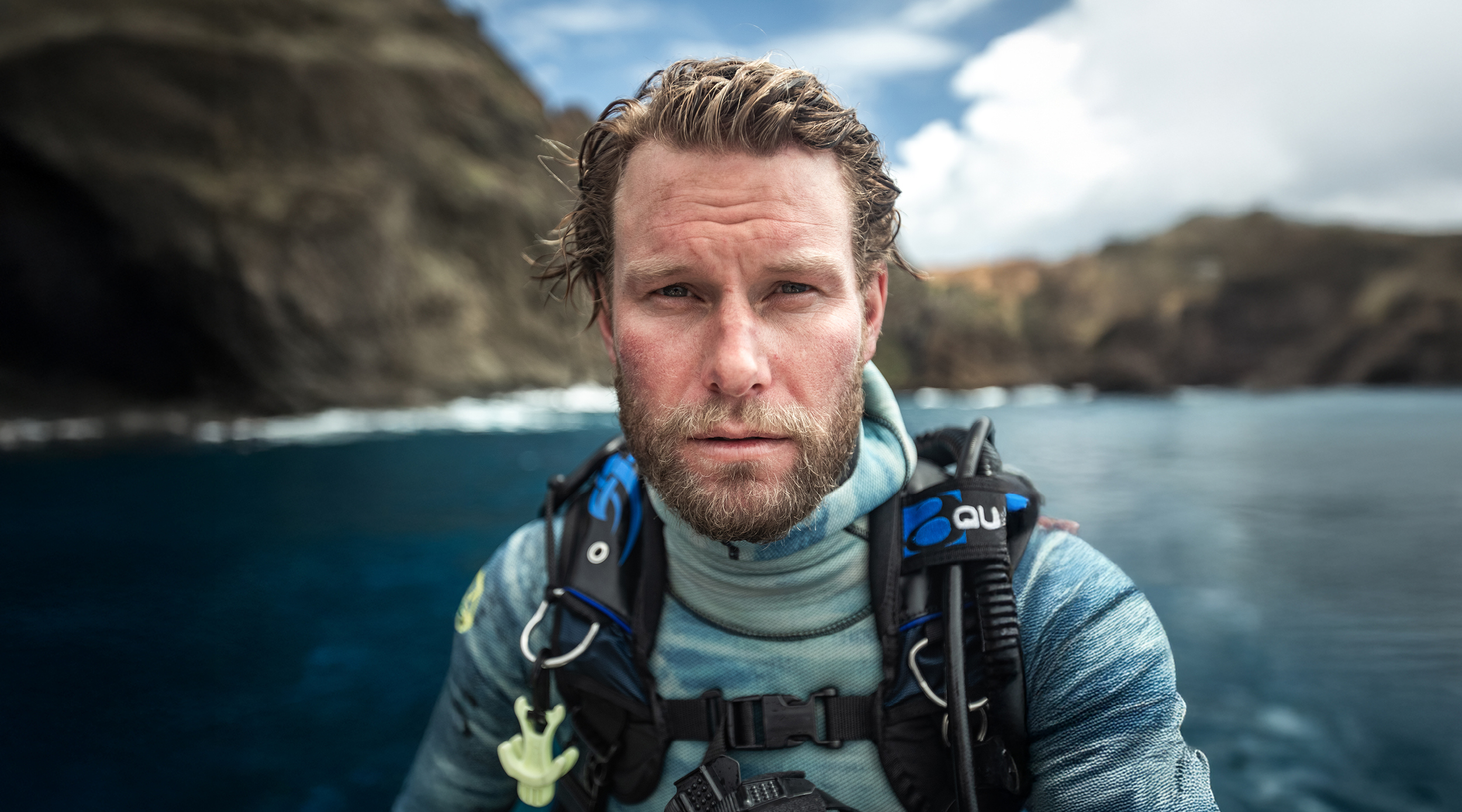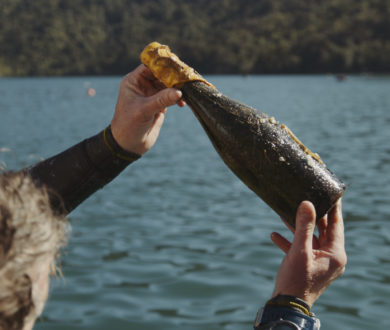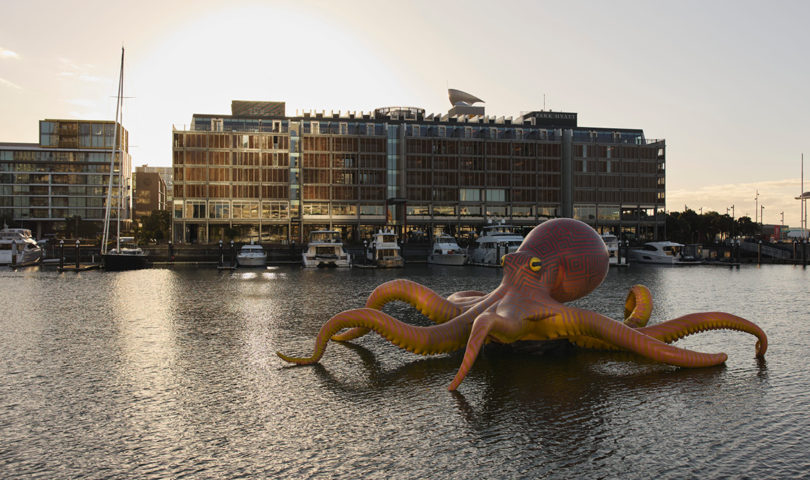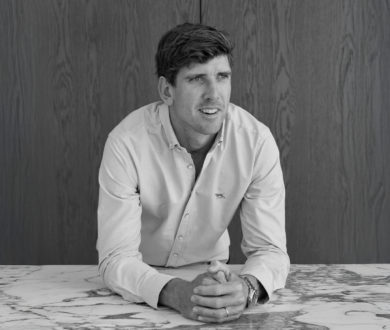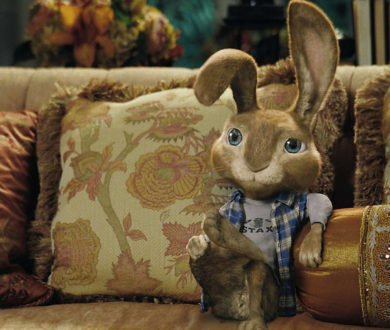Scientist, environmentalist, activist, TV personality, producer, public speaker, ocean-lover, quintessential Kiwi and New Zealand’s very own ‘Shark Man’, Riley Elliott has achieved more in his 37 years than most do in a lifetime. With a novel approach to sharing what is often highly scientific information in a digestible and impactful way, Elliott harnesses the provocative power of photography and videography (coupled with his easy nature and relatability) to inspire action for the oceans and incite change. Here, he shares his journey thus far — from jaw-dropping shark encounters to social impact, how fatherhood has shifted his focus, and the deeper purpose behind his ‘science for the people’ approach.
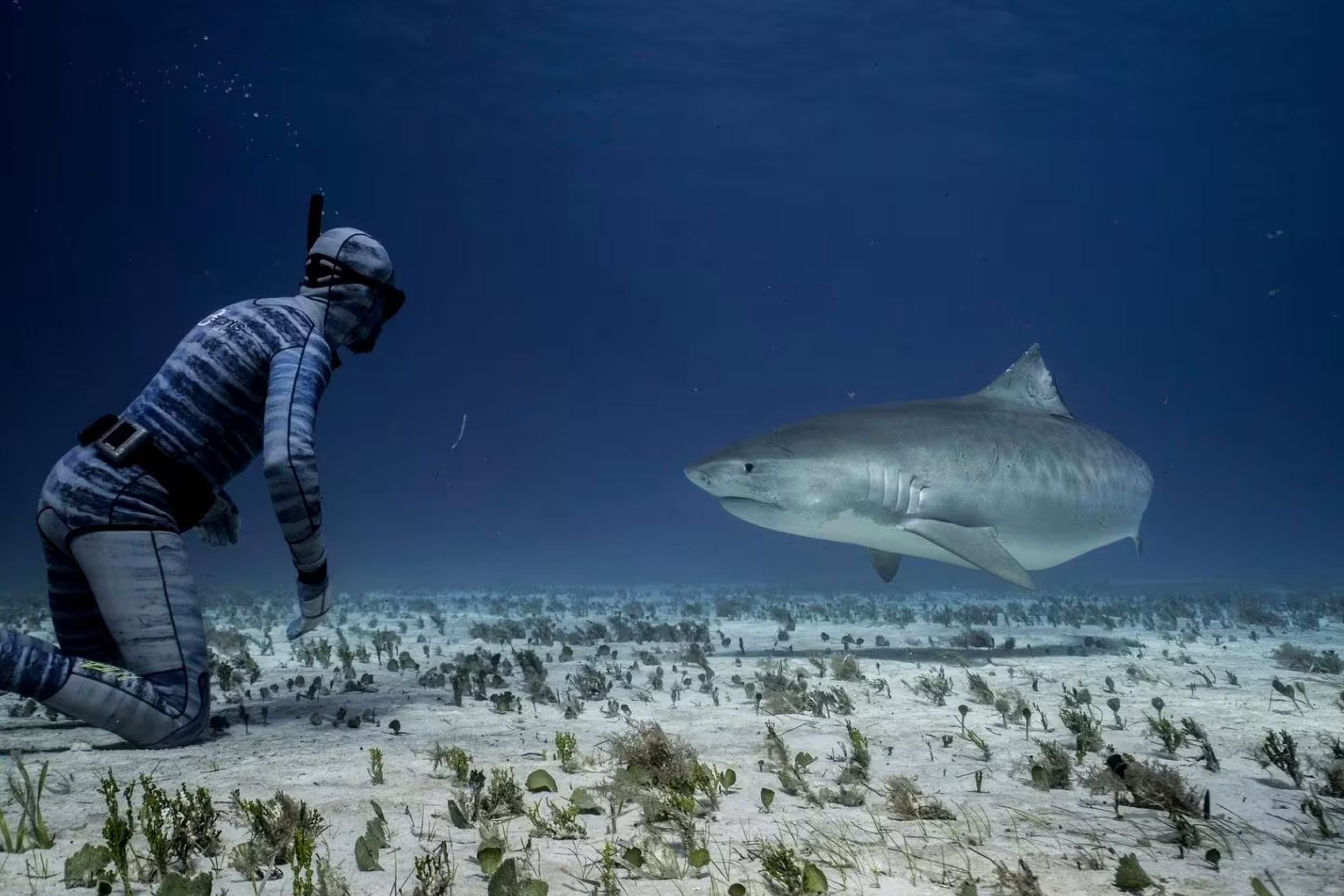
Dr Riley Elliott has lived a life many could only dream of — though, for some, it may well be the stuff of nightmares. As a scientist focussed on the behaviour of sharks, Elliott’s work sees him regularly jumping into the ocean with some of the world’s most capable predators, although, as he’d quickly tell you — it’s not all Jaws theme songs and traumatising triangular teeth.
Elliott’s penchant for exploration and reverence for the natural world began when he was just a boy. As a ‘curious nature kid,’ the Vancouver-born, New Zealand-bred scientist had a very outdoorsy upbringing, spending his childhood with wilderness on his back doorstep, “I spent the start of my life on the northern edge of Vancouver, and the proximity to nature was incredible,” he muses, “But I was also at the forefront, I guess, of human-nature conflict.” He recounts the moment that, at just four-years-old, changed the course of his life, “Right in our backyard, there was a big pit with spikes at the bottom and a chain link cover. I can vividly remember realising that it was a bear trap. Even at such a young age, I couldn’t understand how you could kill an animal for just being itself.” He continues, “I think to be able to have a conscious mind to human-nature conflict at that age definitely hinted at where life might take me.”
Relocating to New Zealand at five (his mother, a Kiwi, wanting to raise her children at home), time spent in nature quickly became time spent in the sea, with the self-proclaimed ‘waterman’ discovering his love for not only the ocean itself, but all manner of water-based hobbies — eventually adding surfing, spearfishing, free diving and scuba diving to his oceanic oeuvre. Elliott’s upbringing, by his own account, was wholesome and largely grounded in academia. With a doctor-lawyer family of six, Riley was a born explorer of the body and mind — and his family have been his ultimate fount of inspiration since boyhood.
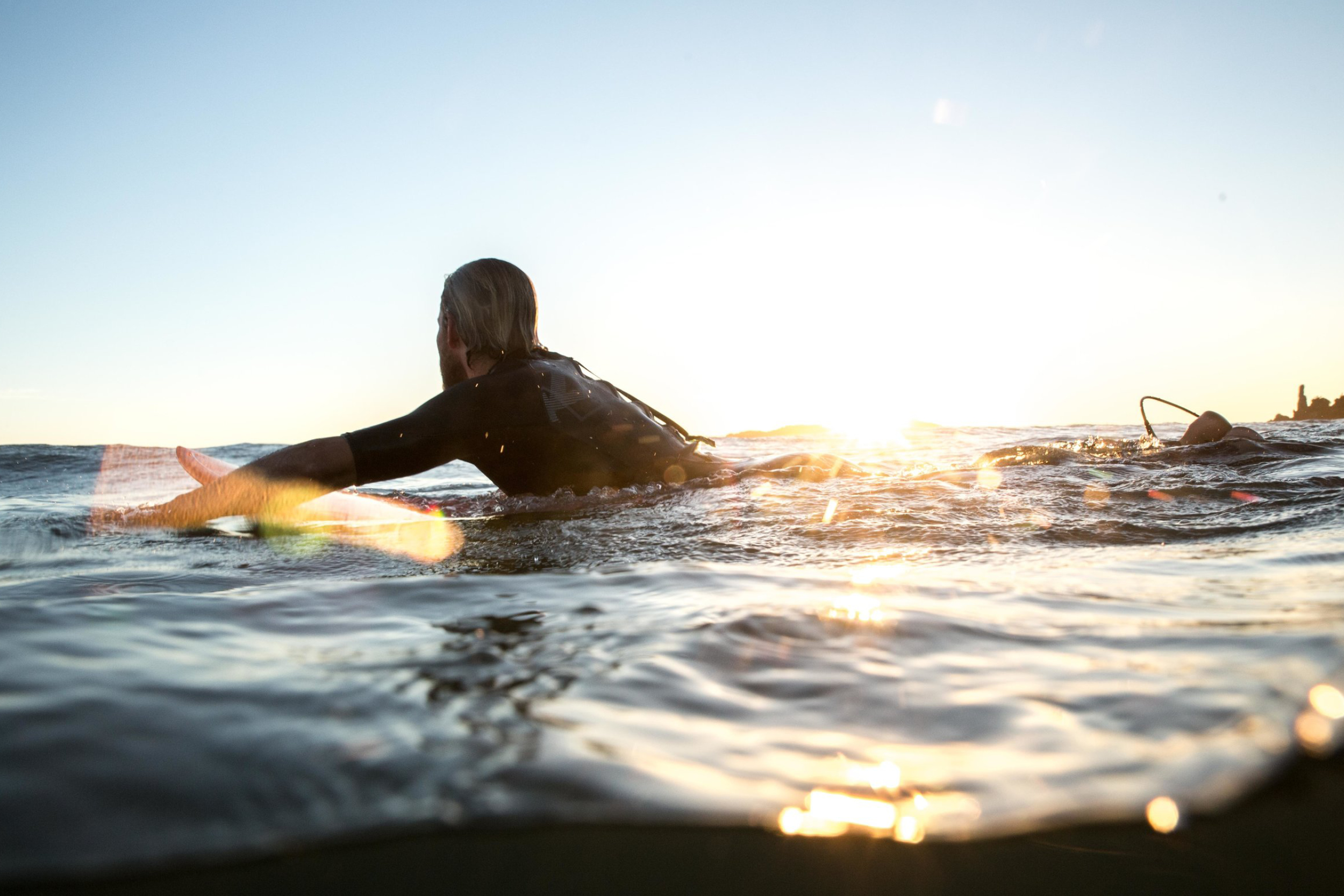
Throughout our time together, Elliott frequently quotes his father, who he later tells me instilled in him a fundamental drive and pragmatism, “Dad always said to me — figure out what your passion is, and then work really hard at it. If you do that, you can be successful at anything.” He adds, “I think that’s been my blind beacon of success ever since.” He also tells me of the commitment his mother showed her family, “Mum’s humanistic approach taught me a lot about hard work and dedication,” he says.
After finishing school, Elliott’s parents encouraged him to take a gap year, and it was during this formative period that he realised, definitively, that nature had his heart.
Returning to New Zealand to study, Elliott talks of knowing his direction, but not his path. With passion as his guiding force, he took courses in zoology and marine biology, geography and geology, accumulating various qualifications on the side — from diving certificates to marine licences, before, weeks out from graduation, as he sat questioning what came next, a poster on the wall captured his attention. Call it fate, or just good luck, but it was this sheet of paper that would change the course of his life — sending him on an adventure to South Africa to study the behaviour of sharks. With obvious passion and talent in the field, following a short internship, he was invited to stay on and help to run the Oceans Research Great White Shark program, and these apex predators have been foundational to his career, and life, ever since.

“As I sit in the boat preparing to go and hand-feed a great white, I definitely ask myself ‘am I up
to this?!’”
Combining his learnings from university with this real-world experience, Elliott quickly proved himself in the field of shark research, turning his fear (“The first time I saw a shark in the wild, I panicked — scrambling to the surface and peeing in my wetsuit.”) to fascination, and finding his niche. But, for Elliott, while sharks are undeniably a love of his, they’re what he refers to as a ‘catalyst creature’ for his broader passion: preserving the ecosystem of the ocean. “They’re the pin-up boy; the easy sell. Like anyone who works in marketing will say — you use the glossy thing to attract attention.”
And sharks have proved an alluring drawcard indeed. Not only for the unique set of issues they face as a species (many of which Elliott works to combat), but the message that accompanies the irony of the fact that the animal we fear the most is one of the most fundamental on the planet. “Sharks are the oldest existing animal on earth, and the apex predator of every oceanic niche,” the scientist explains, “There’s 500-odd species of them that are the king of each of their little realms, and without them, you would see a collapse in the ocean ecosystem that they’ve created stability in for over 400 million years,” he adds passionately, saying that for him, sharks are the hero, not the villain.
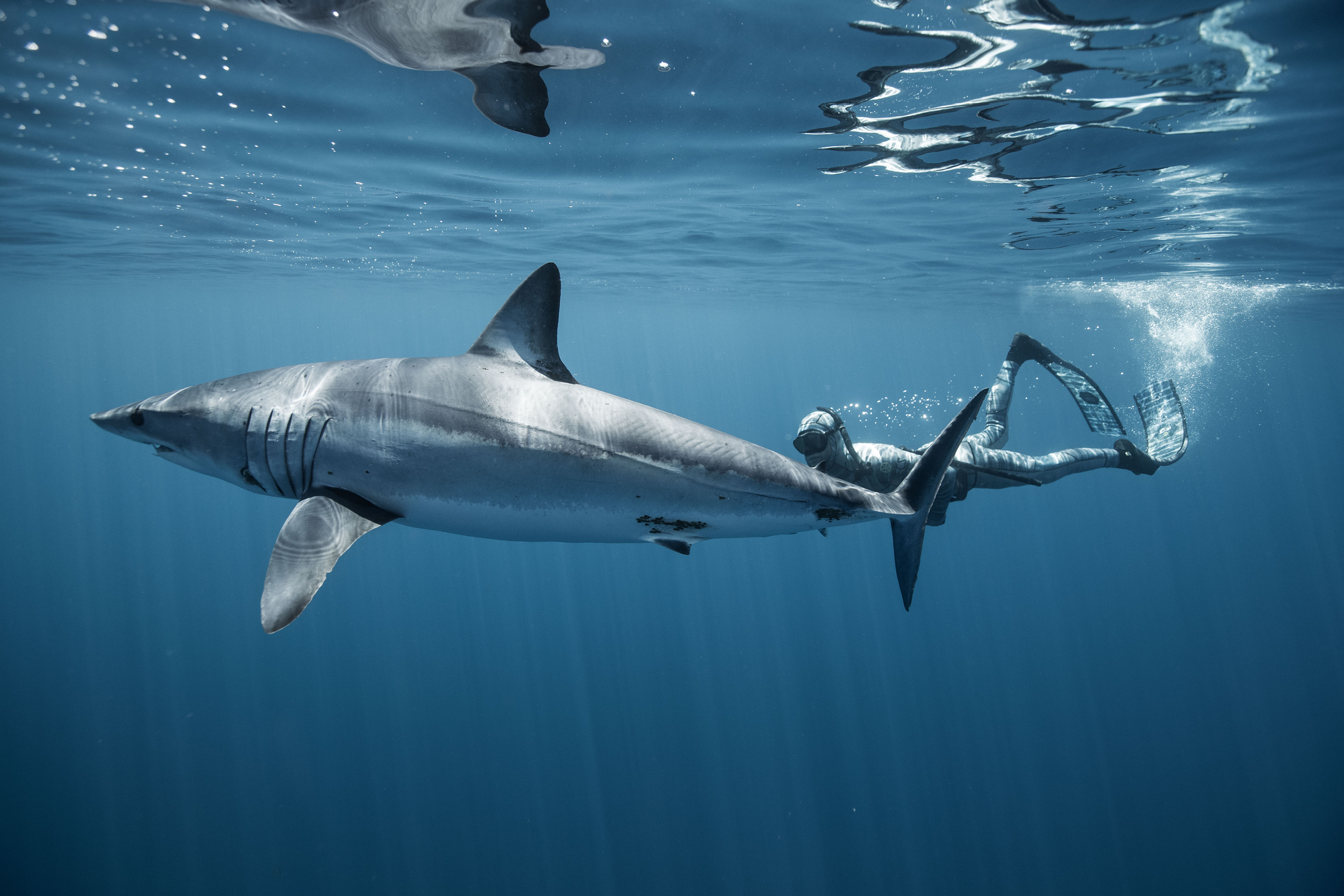
A lot of Elliott’s frustration — and drive, as both a scientist and passionate environmentalist, stems from people’s disrespect for animals in their natural homes, “You can’t hate an animal for doing what it’s done long before we even existed.” He says, adding that without sharks, we wouldn’t be here, “The ecosystem of the ocean — from the sharks at the top to the phytoplankton at the bottom, affords us every second breath of air we breathe. I don’t think people realise how fundamental ocean ecology is to humanity.”
Following his time in South Africa studying these incredible predators, and a brief stint adventuring abroad, Elliott returned to New Zealand to undertake a PhD, taking the path less travelled (as I quickly come to learn isn’t at all surprising), and completing a non-conventionally funded body of research, largely supported by the public and later, his TV work. The scientist is candid about the lack of government backing he had, despite the positive impact his work would come to have on our country — and the world at large (his PhD was focused on the behaviour of blue sharks, and uncovered staggering insight into their decline). He talks of the few available scholarships being afforded to international students that were “solving problems for big corporations.” But ultimately, it was the very fact that his work was self-driven that opened his eyes and set him up for his unique career. Elliott’s prodigious PhD contributed to a change in government legislation both here and abroad, to stop the sordid practice of shark finning — a momentous milestone, and an incredible feat for such a young scientist only at the outset of his career.

It was ultimately the public getting behind Elliott that got the government’s eyes on the issue, and it’s instantly evident that Elliott’s uniqueness lies in his ability to communicate complex, scientific information to the masses in a way that actually captures people’s attention — and resonates. He takes a ‘science for the people’ approach, harnessing the provocative power of photography and videography (coupled with his laid-back nature and relatability) to inspire action and incite change. “If you do something with purpose and passion, people get behind you.” He tells me, adding that his wife, photographer, videographer, and director, Amber Jones — through her innate ability to capture emotion with her lens, has been foundational in communicating the message they collectively stand for. “[Amber] possesses this incredible talent for capturing a moment in a way that stirs emotion,” Elliott tells me with palpable pride, “and it’s through her captivating imagery that we’ve managed to get people’s attention — and ultimately, get eyes on these important issues.”
Elliott strikes me as someone who people are instantly drawn to, so likeable and down-to-earth is his nature, and it seems the people he’s welcomed into his orbit have been more than willing to support him in his purpose-driven endeavours. His foray into TV is a prime example — coming about by happenstance off the back of a friend seeing his potential during a bout of field work for his PhD.
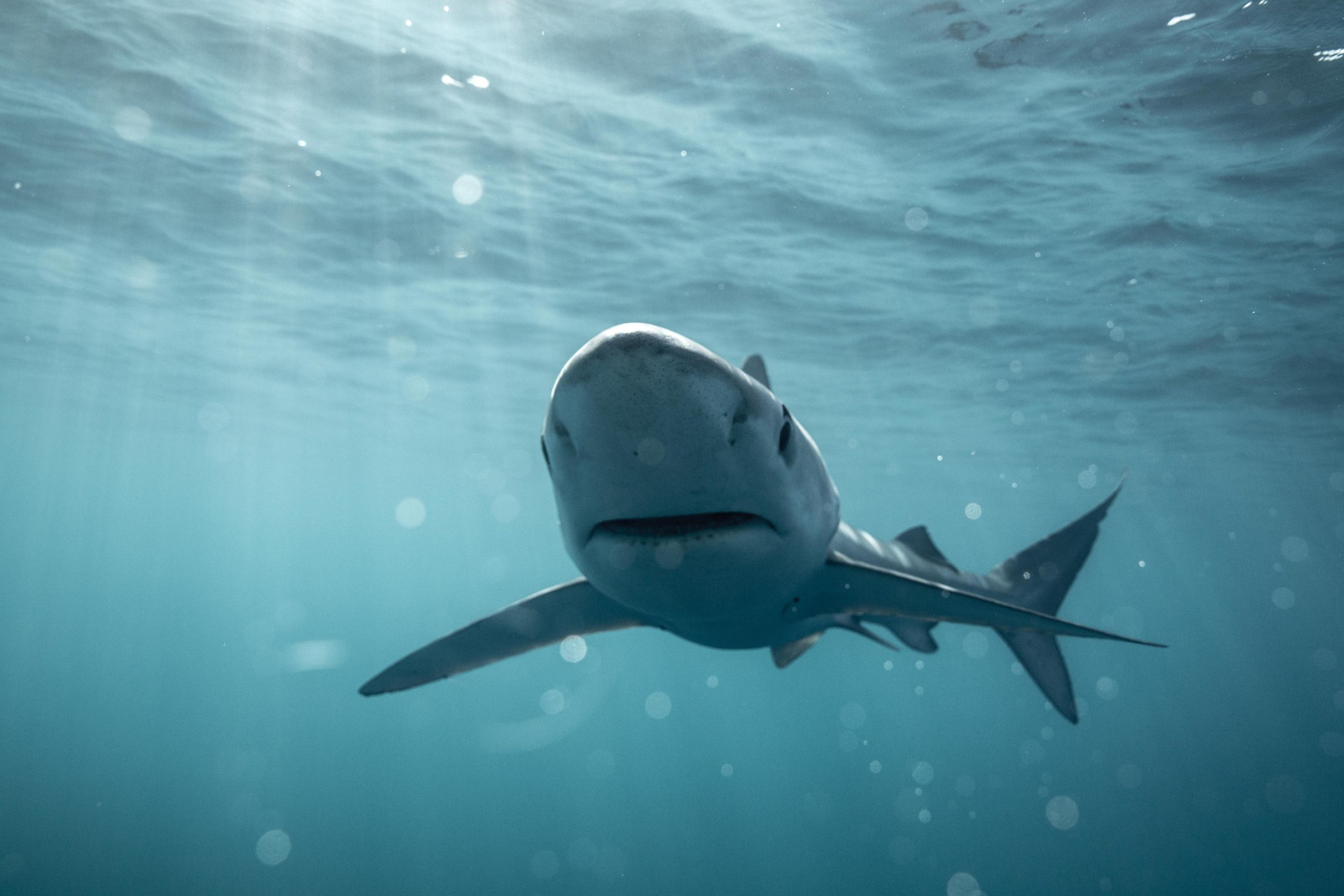
Out on a tagging expedition, Elliott’s friend and mentor, Mike Bhana, who has a background in filmmaking and TV and is also a “mad shark man”, turned to him after seeing how he interacted with the sharks and said “I think you could be quite good in front of a camera.” He began filming, and that early footage ended up forming the basis for Elliott’s first show — Shark Man TV, an underwater adventure series which followed Elliott, as a new generation shark scientist, as he worked with shark researchers, divers, fishermen, and of course, the sharks themselves, as he set about disproving the myths that surround these apex predators.
Fast-forward a few years, and Elliott got his big break — landing a show on Discovery Channel’s Shark Week, watched by 30 million people during its week-long annual run. Off the back of his first docu-series, a call came in from the franchise asking him to narrate a show “for $500 and a dinner in Dunedin”. He jumped at the chance, and clearly, they liked what they saw, because the calls kept coming in year after year, as the volume of offers began increasing, and the names on the call sheet began to carry more weight.
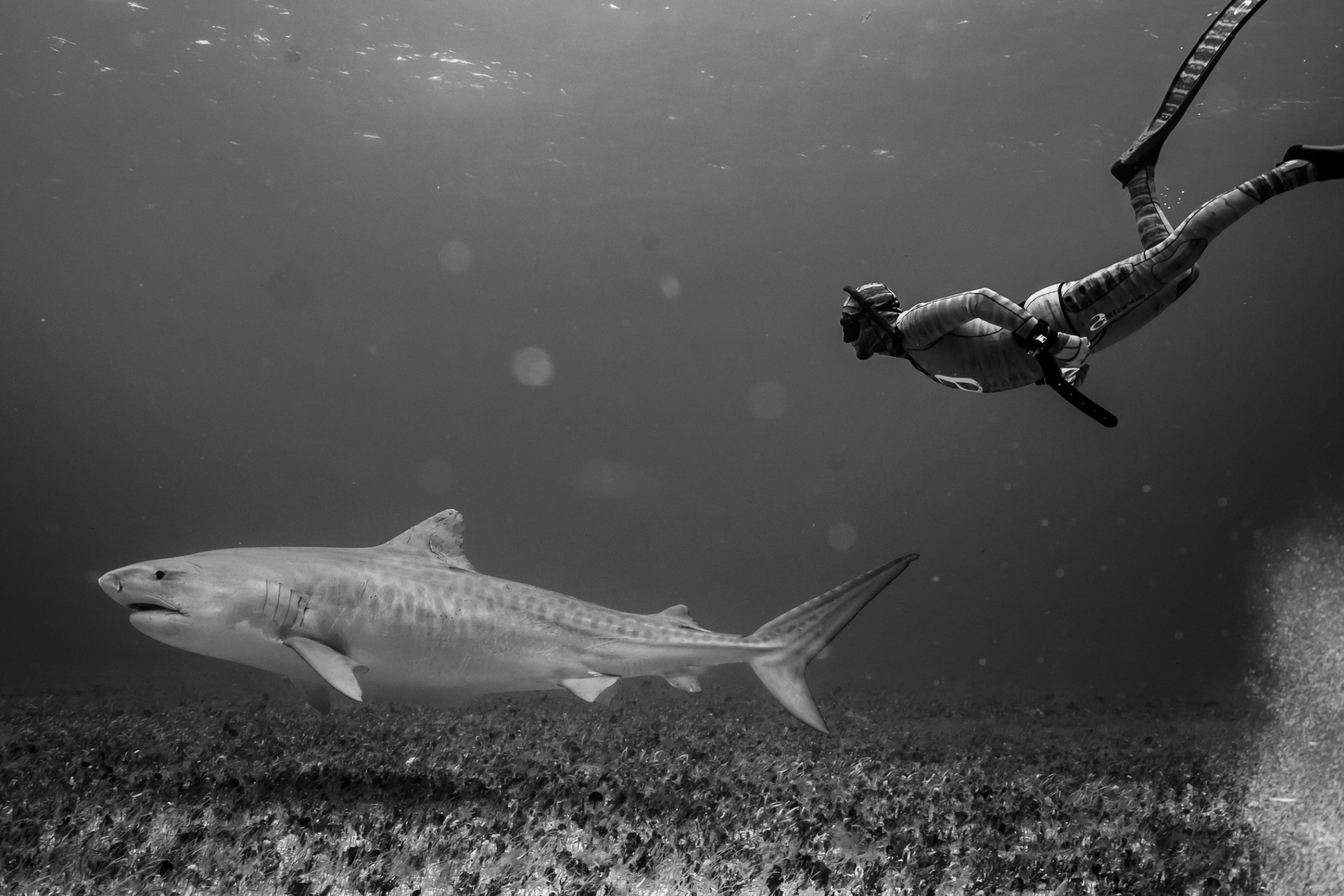
It quickly became apparent to Elliott that there was more to these shows than simply being a front man, and he found himself becoming more heavily involved with logistics, ideation, writing, and, fast-forward a few more years, ‘Shark Man’ found himself on the producing credits, too, having proved his mettle and earned the respect he so deserved.
Resting on his laurels isn’t in Elliott’s nature (his high-achieving family may have something to do with that), and despite the success that he was seeing, he knew there were gaps in his skillset, and quickly set to work plugging them. He began taking masterclasses in business, and soaking up knowledge from those close to him. This observational quality that seems so innate to Elliott has undoubtedly been foundational to his success, both in and out of the water, and it’s also what allowed him to recognise where his passions lie, “I realised by observing those around me what I truly enjoyed, which was telling the stories — and with that comes writing them.” Thus, his career transitioned into a split of in front of and behind the scenes work, starring in and producing his own shows. But, he’s quick to tell me that, these days, it’s the team around him that makes what he does possible, “Just like the shark in the ecosystem, I’ve learnt to find my place in all of it, knowing capable, passionate people surround me — and I’ve learnt to put my trust in them.”
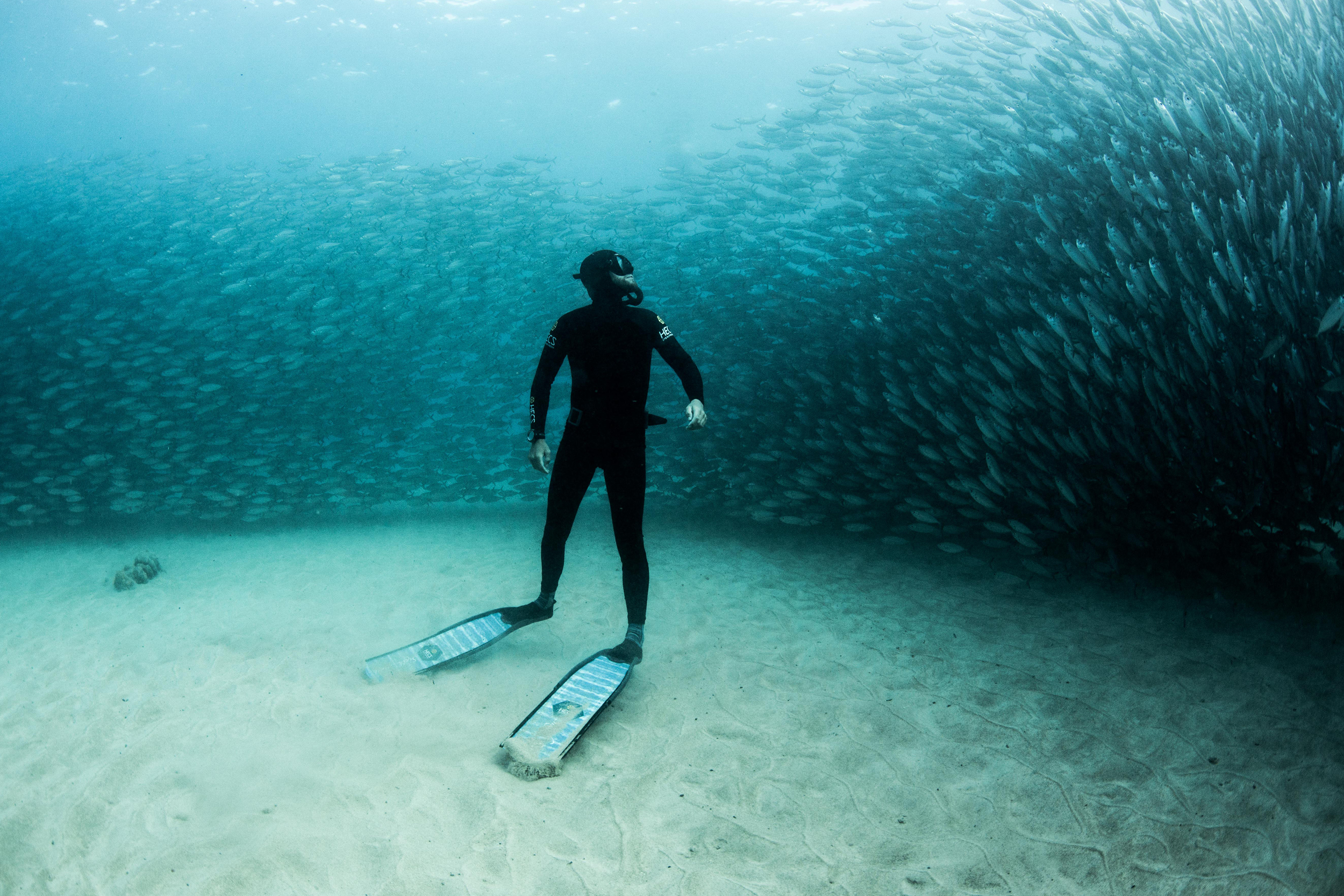
We discuss the shifting landscape of the entertainment industry, “Audiences now, they’re distracted and easily lose focus — they just want to be entertained. And that’s great if you’re watching Friends, but I’ve always done this for the animals and to shine a light on their issues.” Elliott reconciles, “But, as I learnt from [David] Attenborough, you can’t paint the negative,” he says, “I’m so privileged to have the biggest megaphone in the world on sharks, and to be able to create science-based shows that are both informative and dramatic by nature.” He continues, “Through the use of epic imagery and footage and impressive tech, you can, for example, figure out why a collection of shark attacks are happening in one area. And that’s compelling TV, but it’s also dispelling myths about sharks in a way that is only possible by scientific understanding.”
He’s adamant about balancing drama with scientific integrity, and he respects the line between education and entertainment. Shark Week — who are in the business of entertainment, are privy to the issues sharks face, contracting scientists to tell the stories that ultimately shift the dial, and are rooted in science. He adds that there’s a careful balance to be struck — something Elliott has, over the years, mastered the formula of, “If I just did the science, it would sit unread in a journal, and if I just did the dramatic TV, it would be exploitative and unhelpful to the animals,” he says. While acknowledging that things are changing, Elliot is resolute in the demands of viewers (and his career prospects) never superseding his morality, “It’s getting harder and harder to hold onto the moral fibre, because audiences are seeking instant gratification,” he pauses, “But I’m a scientist by trade, and would never cross the line for the sake of entertainment, at the risk of losing my credibility.”
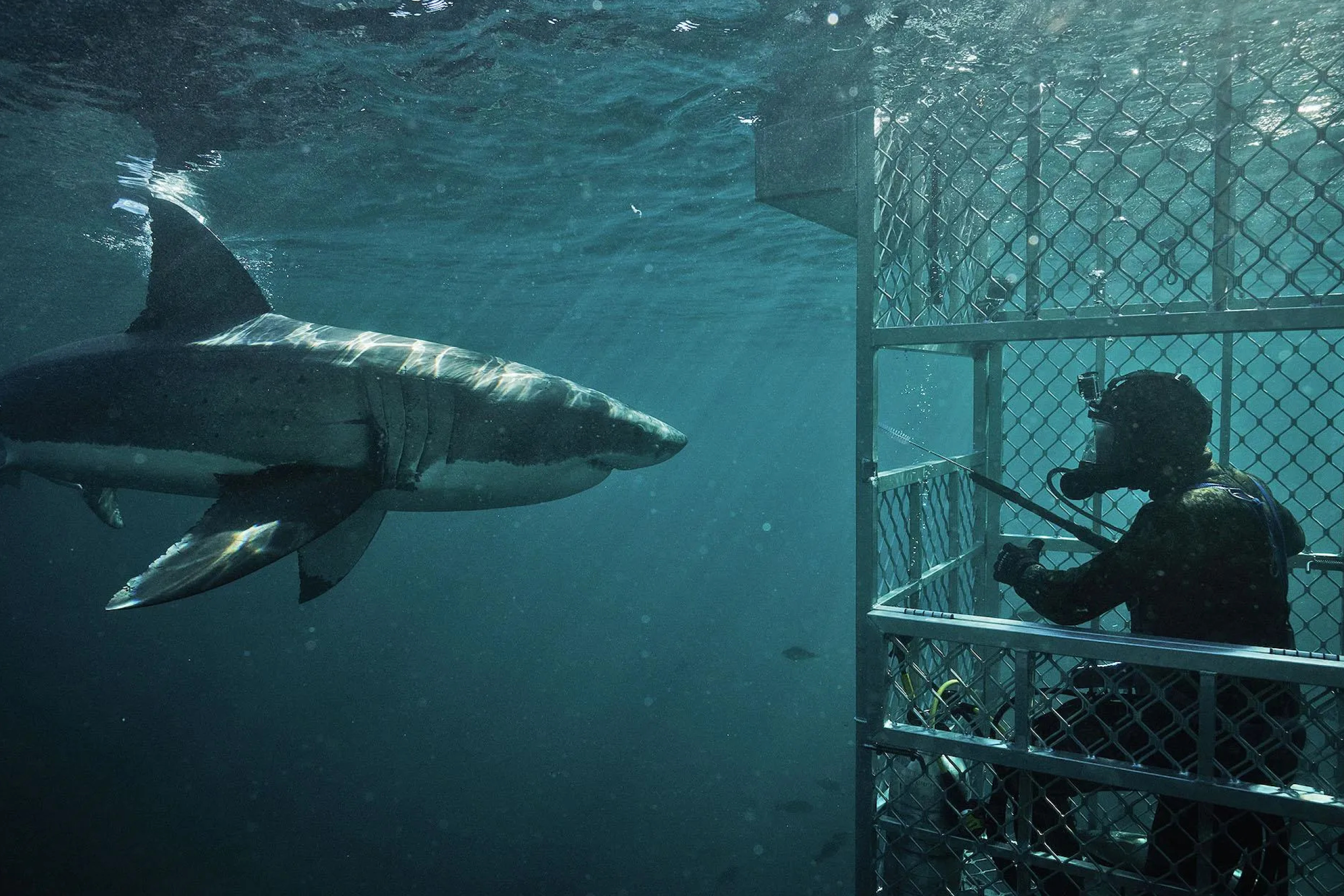
About the future, despite the many challenges humanity faces — much of which is on clear display for Elliott daily, the scientist remains optimistic, “I do believe we can, and are, changing human nature,” he tells me, adding that he knows we have a long way to go before we see real change on a global level, and, while systemic change is fundamental, we all individually have more power than we acknowledge, “The biggest thing I’ve learnt is the power of the people.” Unsurprisingly, David Attenborough is his ultimate inspiration, “Like I learned from Attenborough, you disseminate complex scientific understanding and important messaging through this beautiful imagery,” And that, he tells me, is what shifts the dial — inspiring people to take small, collective steps towards the betterment of the natural world, and their own futures by proxy.
Elliott muses on what a privilege it is to interact with so many incredible creatures in the natural world, but, no matter how many hours he spends in the water, he’s still not — and perhaps never will be, immune to the fear that plagues us all, “As I sit in the boat preparing to go and hand-feed a great white, I definitely ask myself ‘am I up to this?!’.” He adds with refreshing honesty, “I’m afraid of sharks. You should be afraid of sharks. You’d be an idiot if you weren’t scared of a lion or a tiger or a shark, because they’re very capable.” But, he adds, it’s how you respond to that fear that’s important, and it should be from a place of respect, not malice.
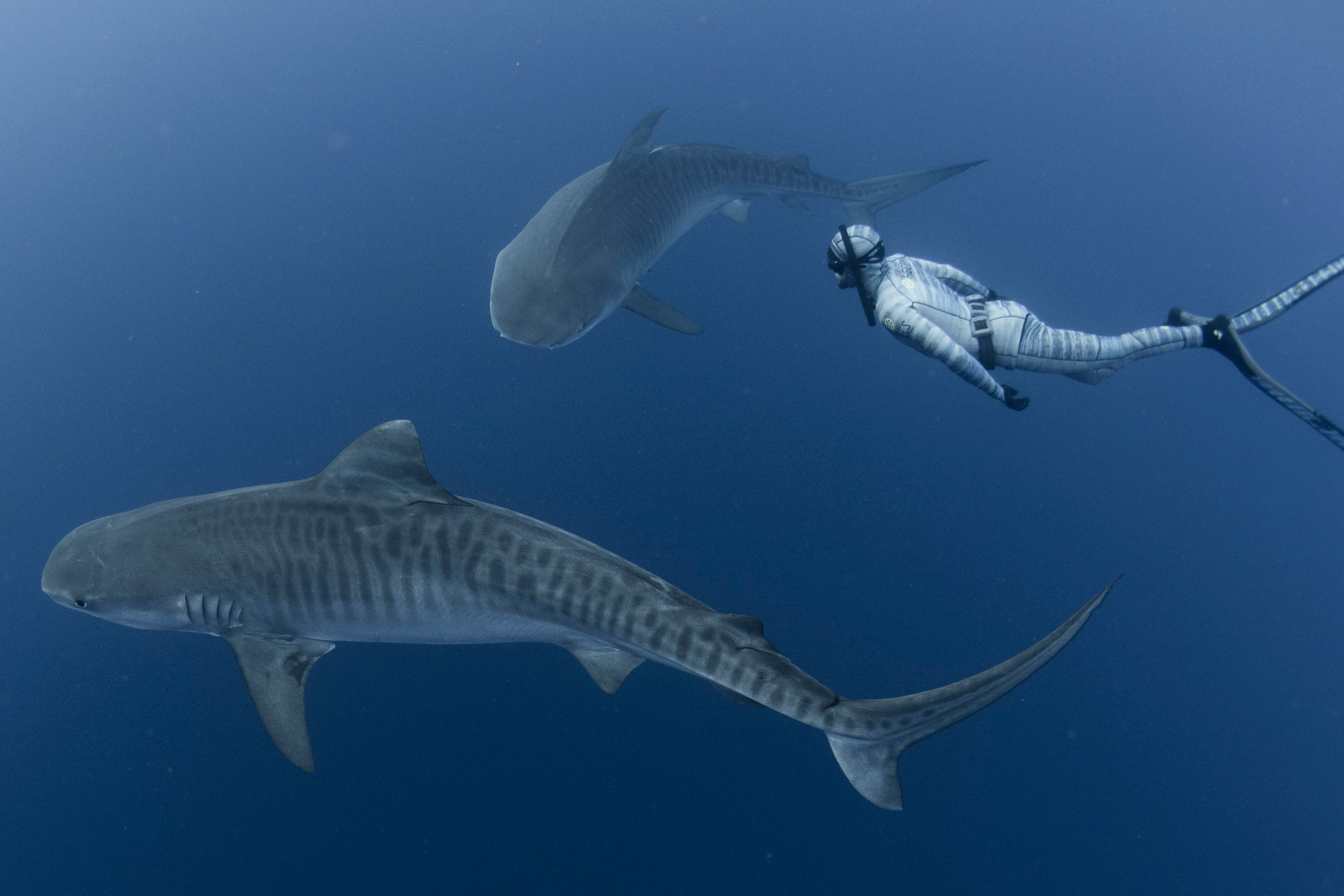
I ask whether there have been any moments in his career where he’s felt unsafe in the water, despite knowing all he does about the behaviour of sharks and having spent the better part of the last decade sharing the water with them. Elliott describes a particular encounter, where he and a friend were filming with a large mako shark in relatively uncharted waters, when he got a gut feeling it was time to get out of the water. “We ended up getting back to the boat and turning around to see a huge mako skyrocketing from depths at the mako we’d been swimming with. We expect an atomic bomb of blood, but sharks can detect vibration using their lateral lines, so it avoided the attack, but we wouldn’t have, and two minutes earlier we were right there — the smaller, more incompetent targets. We likely would have been sliced in half,” he quickly adds that it wouldn’t have been the shark’s fault — that’s just how makos hunt.
While on the topic, I can’t help but to ask, with summer on the horizon, what advice Elliott would give to anyone who’s afraid of what lies beneath. “We’ve got to treat sharks as the intelligent animals they are, and the easiest way to do that is to understand a bit more about them,” he tells me matter-of-factly, emphasising the importance of education, and stating that, were we more educated about different species’ behaviours, we’d be much better-equipped to manage an encounter. “But, what I would say is go swimming! Enjoy the summer, enjoy the ocean. Sharks do not eat people, they very rarely bite people, and when they do, it’s generally because we’ve overlapped with or acted like their food.” The scientist states, “The reality is, if you go in the ocean, you’re going to see a shark at some point, because that’s where they live,” He pauses, “But, at the end of the day, a shark isn’t a demon; it’s a cautious, calculated, highly intelligent, and really cool animal that’s super capable and deserves respect.”
When the notion of respect comes up, I realise that one of Elliott’s most endearing qualities is the way in which he seems to operate from a place of respect — in all facets of his life. Respect for the natural world, respect for animals, and respect for his field.
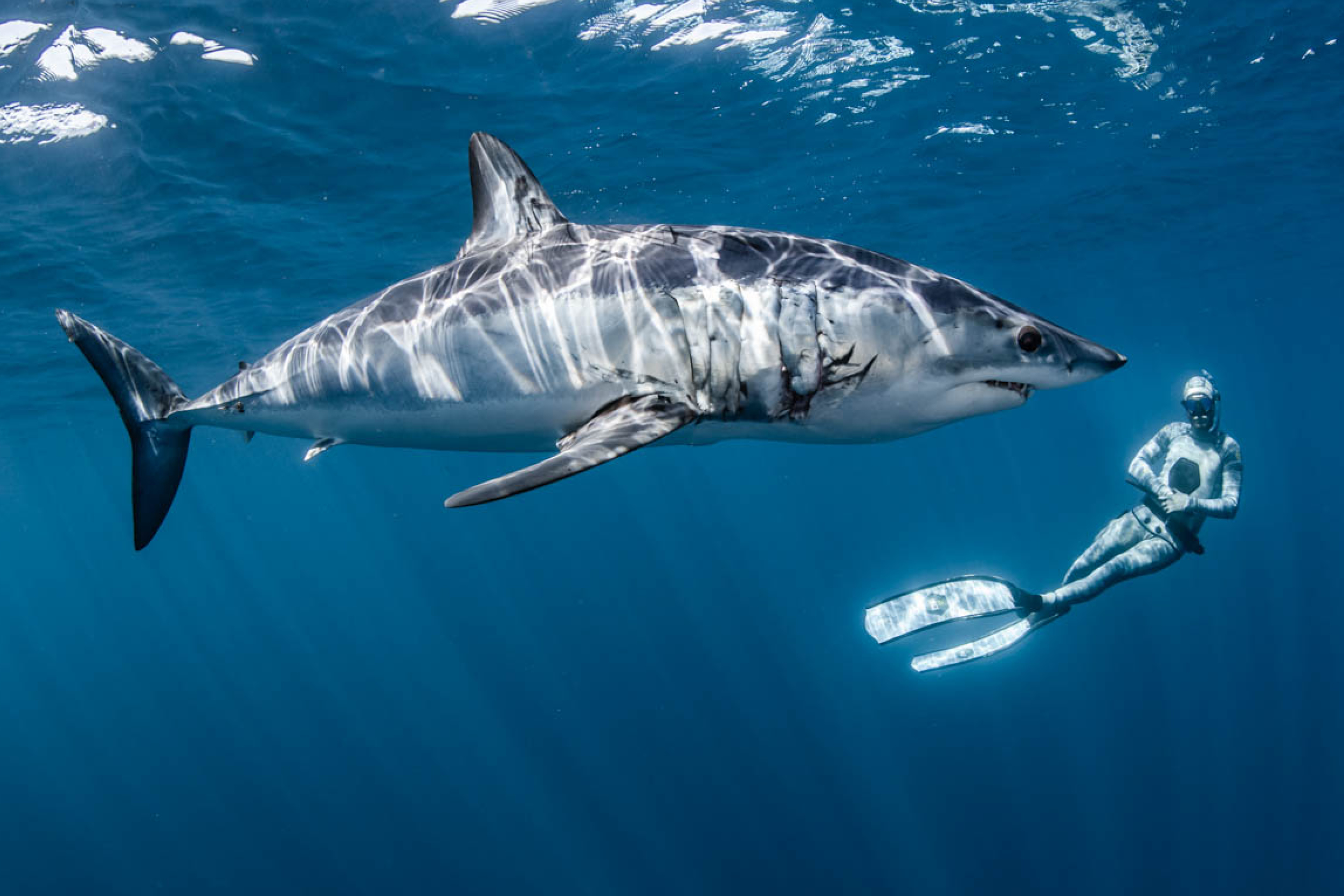
Fatherhood, Elliott tells me, has stretched and challenged him in ways he couldn’t have anticipated, “[Becoming a father] is the hardest hurdle I’ve ever faced, and I’ve done some pretty gnarly shit!” He adds that his daughter has offered fresh perspective when it comes to his future aspirations, and only further fuelled his desire to do his part in preserving the natural world for future generations.
On the topic of parenthood, I’m curious as to whether, given his background and knowing what he does about the impacts of climate change, he second-guessed having a child; his answer is resolute: “I would never not have a child because I don’t think there’s a positive future, because that’s not who I am — I believe that change can happen.” He tells me he’s optimistic for a future that includes having all of the beautiful creatures in the ocean, and that there has already been some really positive industry change. Now, for him, it’s about empowering and inspiring future generations to take accountability, something Elliott thinks needs to happen by getting kids to step offline and immerse themselves in nature to get a true grasp on what they have to lose. If only they’d look up from their phones.
For Elliott, people disengaging with nature is one of the issues that keeps him up at night, and continues to motivate his work. As a result of our insular, phone-first lifestyles, we’ve lost touch with the exact thing we should all be desperately trying to protect and preserve, and, according to the scientist, time’s fast running out. “We need leaders to step up,” he states with conviction, “As a marine scientist, I’m telling you that, in my lifetime, we’ve already lost so much,” adding that he wishes those in positions of power — be it politically or by running a business or by being a person of influence, would realise what’s right and make change.

As such, Elliott will continue his work in ocean ecology, advocating for the ocean and inspiring change via his academic research. “We need to wake up to the reality of our part in the dissolving of the ocean’s complex ecosystem,” he states with passion, telling me that the issues are right on our doorstep, “In the Hauraki Gulf, sedimentation is a huge issue. The mussels are almost unable to form due to the acidification in the water from farm, forestry, and industry run-off, and if mussels disappear, the delicate ecosystem starts to fall down.” Ultimately, Elliott believes that the solution to inciting substantive change lies in education — something he has seen in practice when contributing to passing the bill to ban shark finning.
But, for now, while his work will always be a fundamental part of who he is, having just finished building his and his wife’s dream home in the Coromandel, his focus is carving out time to dedicate to his family (Elliot and his wife have a one-year-old daughter) and getting back to that ‘nature kid’ mentality that was the catalyst for it all. Recalling that foundational experience he had with the bear trap in Vancouver; it strikes me that Elliott possesses a special kind of compassion and understanding that I wish we were all born with. I’m sure the world would be a much better place if we were.

